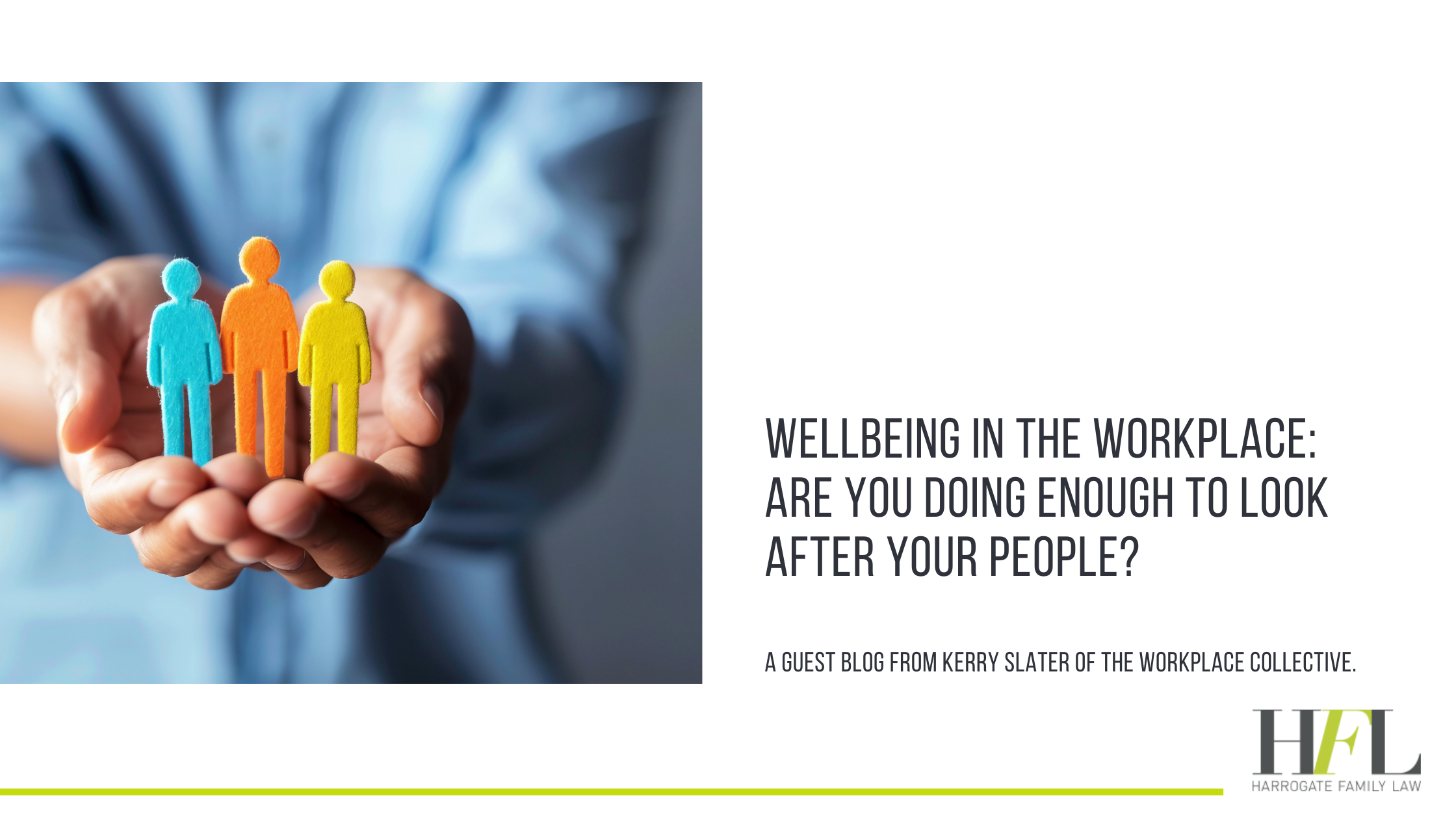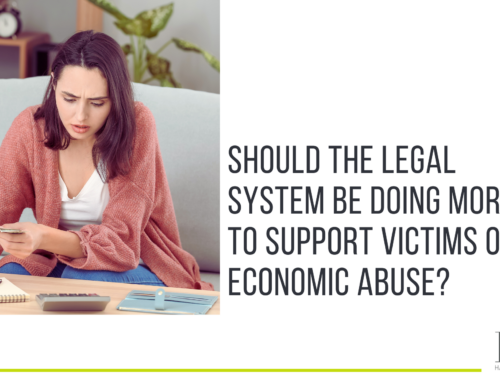Hear from Kerry Slater, co-founder of The Workplace Collective about how they’re helping organisations to put wellbeing at the centre of workplace culture, and supporting our team to be the best we can be for our clients.
In 2021, the Solicitor’s Regulation Authority (SRA) produced a thematic review of workplace culture within the legal sector. In the same year, LawCare – the mental health charity for the legal industry – produced a report called ‘Life in the Law’, for which some 1700 legal professionals were surveyed.
The results painted a pretty grim picture, with 69% of legal professionals having experienced mental ill-health in the 12 months before taking part in the survey.
So, when Harrogate Family Law asked me to write a guest blog about my work with them and why it’s so vital, I was more than willing to get involved.
Stress, burnout, and vicarious trauma – hallmarks of the legal profession
It might sound a little dramatic, but it’s an inescapable fact that lawyers are regularly exposed to high levels of human distress – distress that’s happening in real time. For many clients, lawyers are akin to an emergency service they rely on to respond quickly and solve problems, all while keeping a cool, calm and collected head.
When looked at this way, it’s easy to see why so many lawyers are experiencing high levels of stress and burnout.
What’s the impact, and why does it matter?
If you’re reading this as someone who manages a team of legal professionals, you’ll know all too well the challenges your people are facing. Multiple clients, complex cases, the pressure of billable hours and targets, vicarious trauma – these challenges are very real, and scarily so at times.
Ultimately, they can harm the body, the mind, and how your lawyers function to meet the needs of their clients.
As if you needed any more convincing, the statistics from the 2021 LawCare survey of 1700 legal professionals were quite an eye-opener. Here are just a few that stand out (1):
- Participants averaged a ‘high risk of burnout’.
- Only 57% of those participants who had experienced mental ill-health in the preceding 12 months had talked about this at work.
- 61% of participants said they had experienced anxiety either often, very often or all the time.
What can employers do?
The SRA, Law Society, Bar Association and Law Care are all clear that we need to be proactive when it comes to looking after our lawyers.
As the saying goes, prevention is better than the cure. There are no short-term ‘quick fixes’. It’s not enough to provide therapeutic support to people already struggling to cope with the impact; the focus has to be on embedding the ongoing support they need to manage and process the challenges they encounter.
Ultimately, none of what I’m saying is rocket science. Whatever your profession, you’ll know that having some level of ‘supervision’ is part and parcel of what it is to be seen, heard, understood and supported in your role and your professional life. But what should that look like?
Are you doing enough for your team?
All too often, law firms rely on a sticking plaster approach, consisting of monthly supervision (often performance-focused rather than wellbeing-focused) and various Employee Assistance Programmes (EAPS).
It isn’t enough. You can’t expect lawyers to be burdened with other people’s trauma for a prolonged period without the support mechanisms to offload some of that in return. They need dedicated, specialist support that gives them the strength and resilience to shore up your clients, which is where reflective practice can prove invaluable.
The Workplace Collective: reflective practice that supports performance and wellbeing
Reflective practice lies at the heart of what we do at The Workplace Collective. For me, it’s a non-negotiable ethical standard that helps organisations create the kind of culture people need to feel mentally and emotionally safe and supported.
We work with various organisations, including law firms, for as long as they need us and in a way that works for them. Using the reflective practice model, people are free to discuss their experiences of client work, their feelings about their organisational setting, and any factors that may be affecting them in their personal life – all the things that can seriously impact how individuals show up at work and to their clients.
The work we do is entirely non-judgmental and is based on building a supportive working relationship where people feel comfortable being transparent and vulnerable.
Harrogate Family Law: setting the standard
Working with Harrogate Family Law, I’ve come to realise just how knowledgeable they are in every aspect of their profession, managing caseloads involving divorce, high-conflict cases, complex financial matters and arrangements for the children.
They’re also the experts when it comes to dealing with narcissism, supporting clients who are separating from a narcissistic spouse or partner.
What keeps this firm setting standards is the fact that the leadership team fully understands the challenges their lawyers face, and has proactively prioritised managing the impact. In short, they don’t expect their team to pour from empty cups, and their clients and the firm as a whole are reaping the benefits.
Is looking after your people an investment of time and resources? Yes. Is it worth it? Absolutely. There’s no doubt about it, especially given the fact that here in the UK, absence from work due to mental ill-health is costing employers an estimated £2.4 billion every single year (1).
Gone are the days when firms could expect their lawyers to ignore their mental health concerns, to simply ‘grit their teeth and get on with things’. Your lawyers need a work culture that operates on a human level and fosters psychological safety, as well as employers who are willing to commit to mental wellbeing in the workplace.
If you’d like to talk more about how The Workplace Collective can help you provide just that, we’re all ears.
Email info@theworkplacecollective.co.uk or visit our website at https://theworkplacecollective.co.uk/.
- Life in the Law 2020/21. https://www.lawcare.org.uk/media/14vhquzz/lawcare-lifeinthelaw-v6-final.pdf






